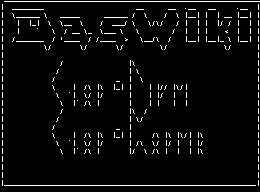- Das Wiki
- zsh.md
- zoneminder.md
- yubikey.md
- yasnippet.md
- xprofile.md
- xmonad.md
- wpa_supplicant.md
- wp3.md
- windows.md
Menu (Edit):
Link List (Edit):
# _ _ _ _ _
# / \ _ __ | |_(_) |_ _ _ __| | ___
# / _ \ | '_ \| __| | __| | | |/ _` |/ _ \
# / ___ \| |_) | |_| | |_| |_| | (_| | __/
# /_/ \_\ .__/ \__|_|\__|\__,_|\__,_|\___|
# |_|
Aptitude
apt (Advanced Package Tool) is a package management system used in Debian-based Linux distributions, such as Ubuntu. It simplifies the process of managing software packages by providing a command-line interface for installing, updating, and removing software.
Key features of apt include:
- Package Installation: You can easily install new software packages from repositories using commands like apt install package_name.
-
Package Removal: It allows you to remove installed packages with commands like apt remove package_name.
Updating Packages: You can update all installed packages to their latest versions using apt update followed by apt upgrade.
Dependency Management: apt automatically handles dependencies, ensuring that all required packages are installed when you install a new package.
Repository Management: It can manage software repositories, allowing users to add or remove sources from which packages can be downloaded.
Overall, apt is a powerful tool for managing software on Debian-based systems, making it easier for users to maintain their software environment.
comm -23 <(apt-mark showmanual | sort -u) <(gzip -dc /var/log/installer/initial-status.gz | sed -n 's/^Package: //p' | sort -u)
 Anoduck's Das Wiki
Anoduck's Das Wiki